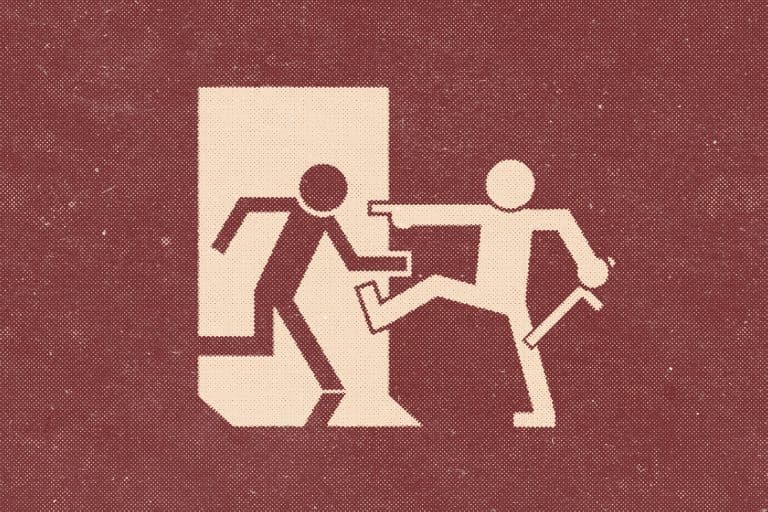The European Court of Human Rights condemns Hungary’s inhumane refugee policy – three times in a single day
A 14-year-old asylum-seeking child was assaulted by field guards in Ásotthalom and thrown back to Serbia by Hungarian police. A 17-year-old asylum seeker was arbitrarily detained for three months. A 28-year-old torture victim asylum seeker was detained despite severe health problems. All three of the Hungarian Helsinki Committee’s clients appealed to the European Court of Human Rights, and all won. The Hungarian state violated their human rights and is obliged to pay just reparation.
Translation is available for this content
Váltás magyarra
It is not the first time this year that the European Court of Human Rights (ECtHR) has ruled against the Hungarian state for unlawfully, arbitrarily and without justification detaining asylum seekers who have applied for protection here. In May 2023, two former asylum seekers held in asylum detention won their case in the Strasbourg court.
M.M. was a refugee from Afghanistan who was 17 when he entered Hungarian territory. He immediately applied for asylum, but the authorities detained him for almost three months. Back in 2014, regulations stated that children under 18 could not be detained, but the authorities did not consider M.M. a minor. He was later transferred to the institution for unaccompanied minors in Fót, where he learned Hungarian. Then the domestic court recognised him as a refugee. Today he lives in a relationship, raises a child with his Hungarian partner and runs a small bar on his own.
H.N., also an Afghan, then 28 years old, fled to Hungary in 2014 too. The Taliban drove him away from his home country. He suffered severe abuses, trauma, and permanent health damage, which left him in constant pain and under medication. Yet he was detained for three and a half months in the detention centre in Nyírbátor. After his release, he was recognised as a refugee. He has been living and working here ever since.
The ECtHR ruled in both judgements that the Hungarian state had violated our clients’ right to liberty and security. The asylum authorities detained our asylum-seeking clients without legal basis, and the Hungarian courts automatically extended detention on several occasions without providing an effective remedy and without taking our clients’ individual situations into account.
The third case is perhaps the most egregious. R.N. fled from Pakistan. He did not embark on the dangerous journey with his parents and relatives, but, despite being 14 years old, he crossed the Serbian-Hungarian border irregularly on 21 June 2017. At Ásotthalom, field guards apprehended him and his occasional companions, then assaulted and humiliated them. László Toroczkai, the mayor of Ásotthalom at the time, triumphantly reported the incident on Facebook. Then Hungarian police forced R.N. and ten of his companions back to Serbia. The Doctors Without Borders’ medical evidence in Serbia documented the injuries on the boy’s head due to the abuse.
The ECtHR ruled that the Hungarian state had violated R.N.’s fundamental rights by removing him without any decision or examination of his situation and failing to provide him, as an unaccompanied minor asylum seeker, with an effective remedy against the authorities’ violations. Instead of placing the child fleeing without his parents in a children’s home and appointing a legal guardian, field guards brutally abused him, and an unscrupulous politician even boasted about the ill-treatment of the defenceless child.
The case is also of legal historical importance: although the ECtHR has already condemned the Hungarian state in several judgements for the arbitrary, often violent, push-back of asylum seekers seeking protection in Hungary, this is the first case in which the Court has ruled on the push-back of an unaccompanied minor.
“Many Strasbourg judgements identified the systematic and utterly arbitrary detention of asylum seekers by the domestic authorities and courts, whether the place of detention is described as ‘detention centre’ or ‘transit centre’. These judgements not only provide our clients with just satisfaction for the unfair and degrading treatment they have suffered but also serve as a benchmark for all European Convention of Human Rights member states”, said Barbara Pohárnok, the Hungarian Helsinki Committee’s lawyer and H.N.’s legal representative, after the ECtHR judgement.
“The judgement of R.N. in particular is a milestone in the ECtHR’s practice in Hungarian cases. The court placed a strong emphasis on the particular vulnerability of our client. Our firm opinion is that the cases of children and the injured should be given greater respect by the state and the government as a human minimum. Imprisonment and abuse based on political ideology is the domain of dictatorships”, said Tamás Fazekas, lawyer of the Hungarian Helsinki Committee and legal representative of R. N. and M. M., commenting on the Strasbourg decisions.